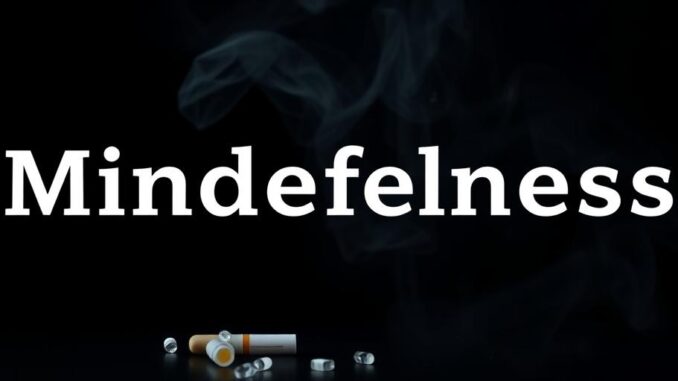
Summary
Mindfulness-based interventions significantly reduce opioid cravings, potentially reversing pleasure deficits caused by opioid addiction. These interventions teach patients to focus on the present moment, manage cravings, and rediscover healthy pleasures. This approach offers a promising new tool in the fight against the opioid crisis.
** Main Story**
Alright, let’s talk about something pretty exciting in the fight against opioid addiction: mindfulness. You know, that practice of being super present and aware? Seems a bit ‘woo-woo’ at first, I get it, but the science behind it is actually pretty compelling and, honestly, game-changing.
Mindfulness: A Real Tool Against Opioid Cravings
Basically, mindfulness, it’s all about focusing on the here and now, without judging. Sounds simple, right? But turns out it can have some really profound effects on your brain, especially if you’re dealing with opioid addiction. Studies are actually showing some pretty remarkable results. I mean, we’re talking about a potential 67% reduction in opioid cravings with mindfulness-based interventions! That’s huge, especially when you think about the scale of the opioid crisis we’re facing.
See, the thing is, opioids mess with your brain’s reward system in a big way. They flood it with dopamine, creating this super strong link between the drug and feeling good. But over time, that means you start to lose the ability to get pleasure from everyday things, the stuff that should make you happy. And that just makes the cravings for opioids even stronger. So, what mindfulness does is, it helps rewire your brain, it retrains it to find joy in those everyday experiences again. You know, like really enjoying a good meal, or taking a moment to appreciate something beautiful.
How Mindfulness Supports Recovery
Mindfulness-based interventions, they usually involve a mix of different things:
-
Mindfulness Meditation: This is the core, really. It’s about focusing on the present, noticing your thoughts, feelings, and sensations, but without getting caught up in them. You just observe. And the more you do it, the better you get at managing your impulses, at choosing how you respond to cravings instead of just reacting.
-
Cognitive Reappraisal: This is where you start to challenge the negative thoughts and beliefs that can lead to opioid use. You know, those thoughts that tell you that you need the drug, or that you’re not good enough without it. By reframing those thoughts, you can reduce the emotional distress that often triggers cravings, sometimes. It’s not always easy.
-
Savoring: I really like this one. It’s about intentionally focusing on and appreciating the good stuff. Really paying attention to positive experiences, and letting yourself enjoy them. This helps boost your brain’s response to natural rewards, which counteracts the pleasure deficits caused by opioid addiction. I had a friend who used this after a bad breakup, it helped her find pleasure in life again.
I actually read about one person in a program, and they said it helped them learn techniques they never knew existed. They still meditate all the time now, using it to manage stress, and they said it was worth every minute. I think that’s pretty powerful stuff.
The Science is There
We’re not just talking anecdotal evidence here, there have actually been some pretty robust studies on this. For example, one study published in JAMA Network Open showed that adding online mindfulness sessions to standard treatment significantly cut down on cravings. And another one, in JAMA Internal Medicine, found that a specific mindfulness program called MORE decreased opioid misuse by almost half in the long term, nearly tripling the effect of regular therapy! It’s just good science.
It all comes down to what’s happening in the brain. Research shows that mindfulness can increase heart rate variability during meditation, and they’ve linked this to improved self-regulation. So in effect it’s like building mental strength. And it also seems to boost activity in the areas of the brain that deal with emotions and attention, making it easier to manage cravings and resist relapse, I saw that coming, didn’t you?
A Hopeful Outlook for Opioid Addiction Treatment
So, what’s the big takeaway? Well, I think it’s that mindfulness-based interventions offer a real sense of hope for people struggling with opioid addiction. By tackling the underlying neurological and psychological factors that drive addiction, mindfulness can empower individuals to take back control of their lives and rediscover the simple joys of living drug-free. And as we learn more about its potential, mindfulness could become a crucial tool in our efforts to combat the opioid crisis. Remember, this is based on the best information available today, June 4, 2025, but research is always ongoing. It’s exciting, wouldn’t you say?


Be the first to comment